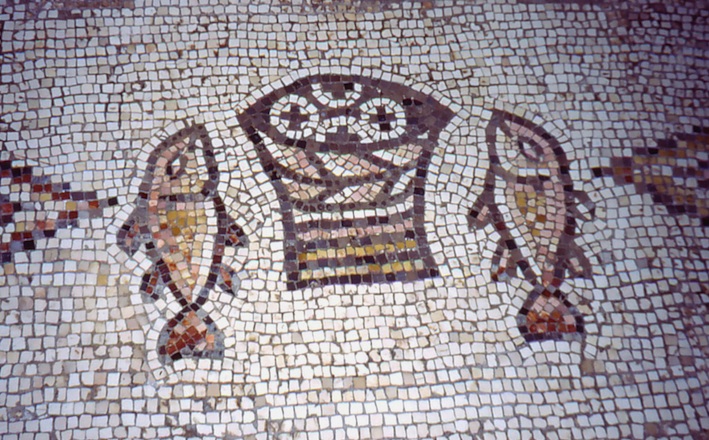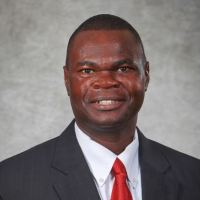Commentary on Romans 9:1-5
The anguish of heart toward another fellow human being drives us to a lament, which in Christian terms is a prayer motivated by the indwelling of the Holy Spirit.
In simple terms, the Holy Spirit moves us to an anguish of heart. Romans 9-10 is imbued with the Apostle Paul’s compassion for his own people who for some reason have not yet accepted Jesus Christ even though God has incarnated in Jesus Christ. It is this “deconversion,” or hardness of heart that drives the Apostle Paul to his knees and pours his heart out to God on behalf of his own people. Similarly, clergy — especially in the 21st century era of growing national, ethnic, tribal, and racial exclusivism — must imitate the Apostle Paul in praying for the salvation of humanity.
The church must exist with the awareness of the Pentecost event found in Acts 2 where God poured out the Holy Spirit on all nations and this miracle of diversity is what should be remembered, celebrated, preached, and taught during the Christian season of Pentecost. Church leaders must call upon the Holy Spirit to empower them to effect change in ways that glorify God. Prayer must be revived among our congregations and across all lay Christians who are the people of God. Global Christianity must be characterized with love, peace, and transformation and these values are within the realm of the Holy Spirit. Secondly, leaders must be mindful of God’s promises in spite of human unfaithfulness and that God will always watch over the “remnant, faithful Israel,” who are included in Paul’s prayer when he says, “The gifts of God are irrevocable” (Romans 11:29).
The ones who have been touched by God’s Holy Spirit or by Jesus are always under the watchful eye of God and in the end they will be saved (Romans 11:26). In other words, election is a concept not only for Judaism but also for those who have come to believe in Jesus Christ and consequently live under the Holy Spirit. Grounded in God’s calling and sustained by the promises of God, believers are marked sacramentally by baptism, the death and resurrection of Jesus, and their place is reserved in God’s Kingdom. In essence, both Jewish Christian and Gentile believers are one divine family marked sacramentally by God as kinfolks or sisters and brothers in Christ.
In some ways, Paul gives a warning to Christians that being God’s people can be a problem. It can be a problem when people fail to distinguish between a right and privilege of which the latter is true in terms of the church. In view of being invited into the family of God and of the irrevocable promises made by God to the church, especially our faith ancestors and matriarchs, the faith siblings can slide into an attitude of superiority and fail to extend God’s grace and mercy to strangers.
In some ways, justification and salvation does not depend merely on being a Christian but on the basis of being in loving relationships with others. Despite the privileges of justification and salvation, through the life, death, and resurrection of Christ, Christians have the potential of being a closed community; and like Paul, church leaders must prayerfully and sadly reflect on this predicament.
As prophets in ministry, clergy must remind all who seek faith of the privilege of being part of God’s salvation history. It is not only being in the church but being part of a privileged society that can be problematic. Oftentimes, a sense of superiority comes with a belief in the inferiority of others, especially when it extends to the poor, strangers, and ethnic minorities. The metaphor of the olive tree and its branches is a rich one, especially when Christians worldwide realize that God has a way to graft others in our midst and that it is not our doing but has always been God’s plan from the time the Israelites were called.
In others, the promise to Abraham are made meaningful and fulfilled when outsiders are included in the community of faith. Arguably, Paul foresaw that God’s people will always have this problem and he grieved that the future church will be threatened by the sin of exclusion. However, it is not all Israel as a nation or even the entire church that will be exclusive but a certain brand of Christianity. The mystery of God is in many cases manifested in situations like those Paul paints in Romans 9-11, and that in the end the true “Israel,” of God will be saved. Attending church, tithing, knowing the Book of Discipline or other church rules, and being part of the church leadership hierarchy does not mean that one has attained righteousness; but what is needed is what God did in and through Jesus Christ. Thus, obedience to faith in Jesus Christ is the only thing that God uses in the justification of humanity.
What then should the church teach? The answer is that the church must focus on teaching the resurrection of Jesus and its daily manifestations, enabled by the Holy Spirit in the life of the believer. In other words, the human condition, which is marked by chronic brokenness, can lead people not only to exclude but also to kill others. But the church has an obligation to teach about the meaning and manifestations of faith and this is the central message of Pentecost — it boils down to love of all humanity. The human condition can only be transformed by preaching and hearing the Gospel of Jesus Christ who is the embodiment of God, and the church is the space and channel of the good news. Like the Apostle Paul, Christians in the 21st century must be pained by the decline of our congregations and we must pray for the revival of a multiethnic church. It is when the church becomes a diverse community that God’s “Shekinah,” or glory that was believed to dwell above the Ark of the Covenant, may also dwell above the 21st century church.
In reality, what God did for the faith ancestors and for the Jesus movement of the 2nd through 4th century is possible for the 21st century church only when another Pentecost is experienced, one in which the human family accept each other without exclusion.


August 6, 2017